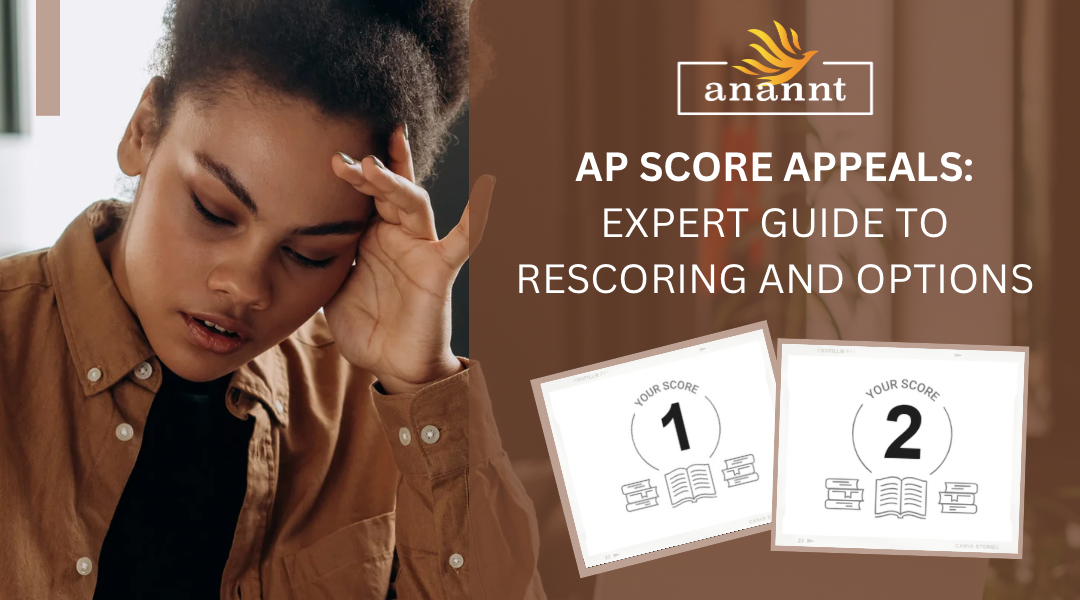
Unhappy with Your AP Scores? Here’s How to Appeal and What You Can Do!
Hey there, fellow AP student! 👋 Feeling a bit down about your AP scores? Don’t worry, you’re not alone! Many students find themselves in this situation, wondering, “What can I do if I’m not happy with my AP scores?” or “Is there a way to recheck or rescore my AP test?” Well, you’ve come to the right place! Let’s dive into all your options and walk through the process step-by-step.
Understanding Your Options
Before we jump into the nitty-gritty, let’s quickly overview what you can do if you’re dissatisfied with your AP scores:
- Request a rescore of the multiple-choice section
- Consider retaking the exam
- Talk to your AP teacher about a potential review
Now, let’s break these down in detail!
Option 1: Requesting a Rescore (aka Rechecking)
If you believe there might have been an error in grading your multiple-choice section, you can request a rescore. Here’s how:
Step 1: Download the Form
First things first, you’ll need to download the AP Multiple-Choice Rescore Service Form. You can find this on the College Board’s website here.
Step 2: Fill Out the Form
Take your time to fill out the form accurately. Double-check all your information!
Step 3: Pay the Fee
There’s a $30 fee per exam for this service. It might seem a bit steep, but it’s worth it if you genuinely believe there’s been a mistake.
Step 4: Submit the Form
You can either mail or fax the completed form to the College Board. Remember, it must be received by October 31 of the year you took the exam. Don’t procrastinate on this one!
Step 5: Wait for Results
After submitting, you’ll need to be patient. It usually takes 6-8 weeks to get your results back.🔑 Key Things to Remember:
- This service is only for the multiple-choice section.
- Your score could go up, down, or stay the same.
- The rescore results are final – no appeals after this!
Option 2: Retaking the Exam
If rescoring isn’t an option or doesn’t work out, you might consider retaking the exam. Here’s what you need to know:
- AP exams are offered once a year in May.
- You’ll need to wait until the next school year to retake the exam.
- It’s a good idea to use this time to study and improve your knowledge of the subject.
For more information on exam dates and registration, check out the College Board’s AP Calendar.
Option 3: Teacher Review
If you received a score of 1 or 2, there’s another option available:
- Talk to your AP teacher about reviewing your exam.
- If they believe it was scored incorrectly, they can contact the College Board.
- This needs to be done quickly, usually by July 31, so don’t wait!
FAQs: Your Burning Questions Answered!
Q: Can I appeal my free-response section score?
A: Unfortunately, no. The rescore service only applies to the multiple-choice section.
Q: Will colleges see all my AP scores?
A: Yes, unless you choose to withhold or cancel a score. Learn more about score reporting on the College Board website.
Q: Is it worth retaking the exam?
A: It depends on your situation. Consider factors like college credit policies, your study time, and potential for improvement.
Remember: This Is Not the End of the World!
Hey, let’s take a moment to put things in perspective. 🌟
Your AP Scores Don’t Define You
First and foremost, it’s crucial to understand that your AP scores, while important, are just one small part of your academic journey. They don’t define your intelligence, your worth, or your future potential. Many successful people have faced setbacks in their academic careers and gone on to do amazing things!
It’s All About Growth
Think of this as a learning opportunity. Maybe you’ve discovered areas where you can improve your study habits, or perhaps you’ve realized that you need to approach certain subjects differently. That’s great! Self-awareness and the ability to learn from experiences are invaluable life skills.
Your Future Is Still Bright
Colleges and employers look at much more than just your AP scores. They’re interested in your overall academic performance, your extracurricular activities, your personal growth, and your potential. One set of scores won’t make or break your future.
You’ve Got This!
Remember, you’ve already shown incredible dedication by taking AP courses. That says a lot about your ambition and work ethic. Those qualities will serve you well, regardless of any individual test scores.
Bounce Back Stronger
Every setback is an opportunity for a comeback. Use this experience as motivation to push yourself further. Whether you decide to appeal, retake the exam, or focus on other areas of your academics, you have the power to turn this into a positive force in your life.
You’re Not Alone
We’re here for you! If you have any questions, need further assistance, or just want to talk through your options, please don’t hesitate to reach out to us. We’re always happy to help!Contact us at:
- Email: [email protected]
- Phone: +919607603939
Remember, you’ve got this, and we’ve got your back! Your future is bright, regardless of any single test score. Keep moving forward with confidence and determination!

Recent Comments